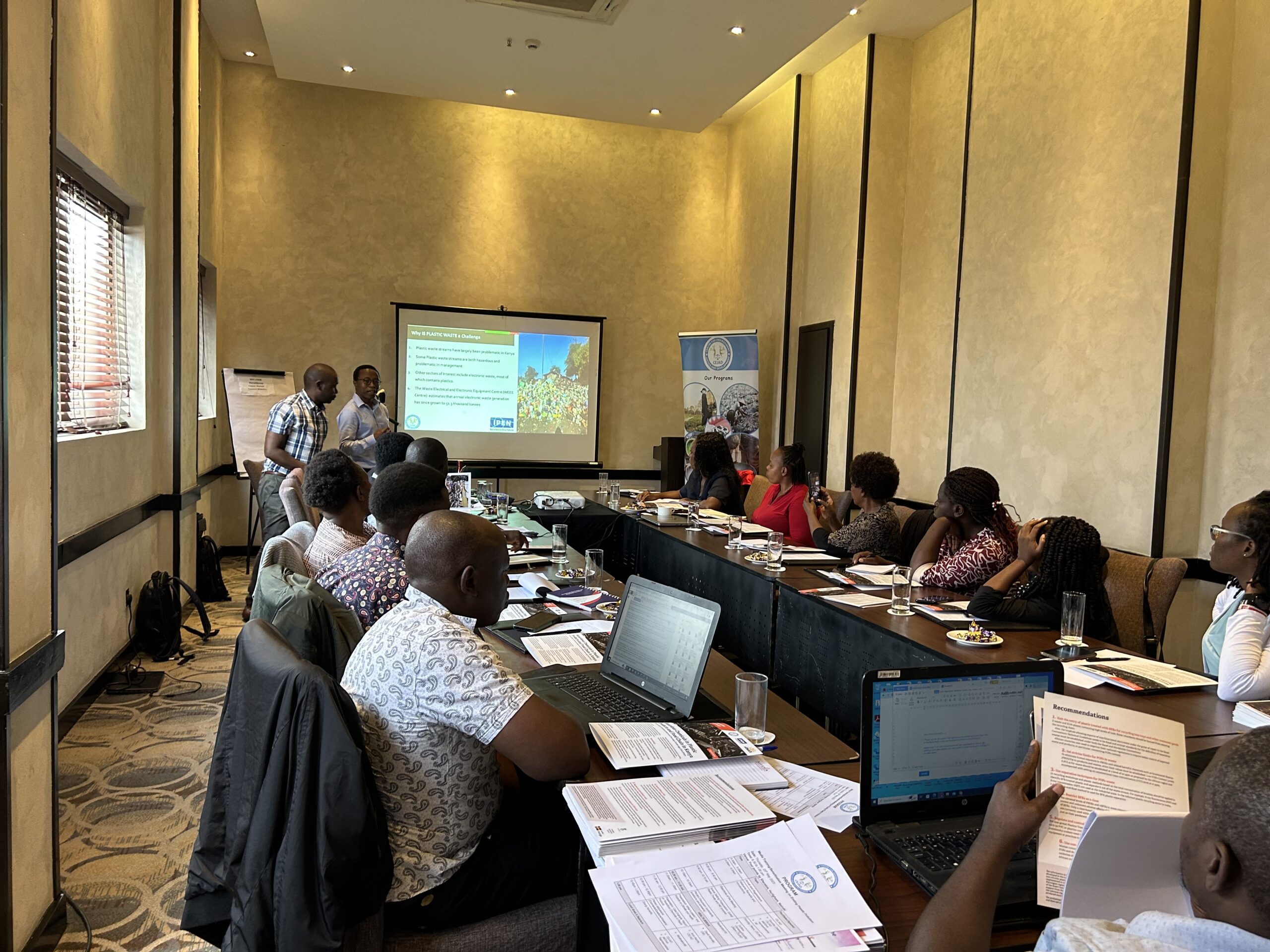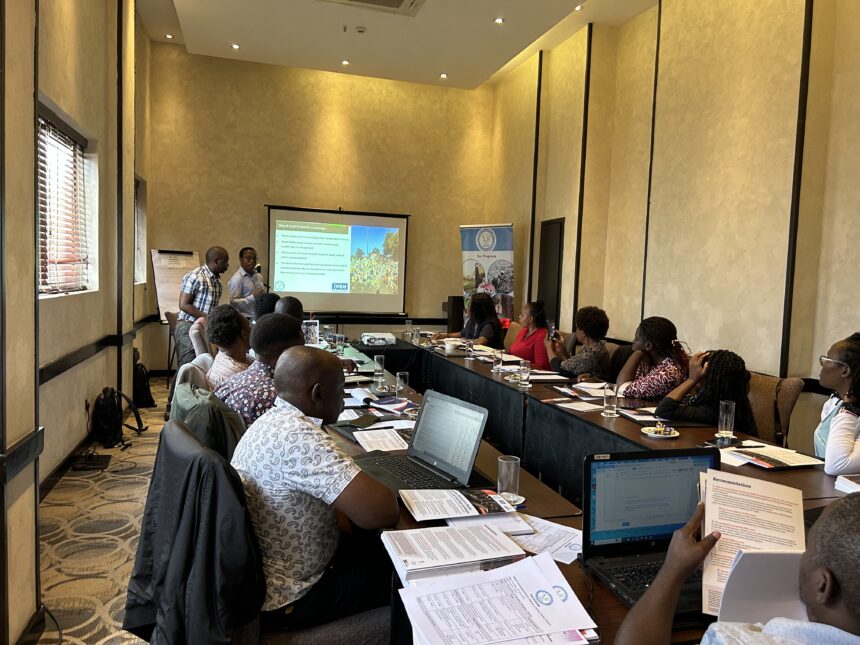
By Godfrey Ombogo
Recycling is not really a solution to plastic pollution, experts have warned. This is because plastics contain additives that contain chemicals and make recycling toxic and complicated.
The recycling companies also use technology that produce greenhouse gas (GHG) emissions and further harm the environment, says David Azoulay, the Director of Environmental Health Program at the Center for International Environmental Law (CIEL). CIEL uses the power of law to protect the environment,
promote human rights, and ensure a just and sustainable society.
Azoulay says plastics produce over 13,000 chemicals, 3,000 of which are toxic and not much is known about 80 percent of the remaining 1,000.
“These chemicals in the plastic lifecycle have serious health impacts, especially on our immune systems and sensory organs. The plastic that goes into our respiratory system is 10 times more than what is found in the oceans,” he says.
Azoulay spoke during a media sensitization meeting in Nairobi on ending plastic pollution. The meeting was organized by the Centre for Environment Justice and Development (CEJAD), a non-governmental organization that promotes sound management of chemicals and waste in order to protect the natural environment and wellbeing of the Kenyan people, especially vulnerable populations.
CEJAD was part of a team that sent a proposed resolution to the World Health Organization (WHO) to be adopted during the 67th World Health Assembly on May 24, 2023.
The draft resolution titled, ‘The impact of chemicals, waste and pollution on human health’, seeks to compel plastic producers to make known the chemicals contained in the products to make disposing of them easier and less toxic.
“Concerned that the production, consumption and disposal of plastic products, including microplastics and related chemicals, which can be released to the environment, may potentially impact human, plant and animal health as well as the environment, directly or indirectly,” reads the draft resolution.
The resolution was proposed by Canada, Colombia, Ecuador, European Union and its Member States, Mexico, Monaco, Peru, Switzerland and Uruguay.
CEJAD Executive Director Griffins Ochieng says even though Africa is not a major producer of chemicals, its population suffers most from the impacts of highly hazardous chemicals, especially in plastics, and pesticides.
“When we look at the harm caused by plastic pollution, we need to end the production of toxic chemicals,” he said on the sideline of the World Health Assembly.
During the sensitization workshop, Mr Ochieng told journalists that toxins in plastics are now finding themselves into the food chain in Kenya.
In April, CEJAD released a preliminary report of a study that aimed to determine whether persistent organic pollutants (POPs) find their way into consumer products and human food in Kenya due to waste management practices such as recycling, dumping or burning.
The study found that egg samples from free-range chicken in certain parts of Nairobi contained levels of dioxins and furans that were two to eight times higher than the EU regulatory limit of 2.5 pg TEQ/g in fat.
The eggs were sampled from areas around Dandora dumpsite, where waste burns or is burnt; Ngara Market, where there is an e-waste dismantling site; Mirema, where there is a community cooker that uses plastics as fuel; and Nanyuki near a dumpsite with open burning and e-waste disposal.
The results show that the highest level of dioxins and furans was in eggs from the Dandora dumpsite, followed by eggs from the Ngara market and Mirema. The sum of dioxins and furans was 100 and 111 times, respectively, above the EU regulatory limit of 5 pg TEQ/g fat in two pooled egg samples from the Ngara market.
“Based on these findings, the average per capita consumption of eggs in Kenya (36 eggs per year), would exceed the TDI [tolerable daily intake] for dioxins and furans by 5 to 6 times,” reads the report.
“In addition, we can also say that a person eating just one egg from the Ngara market would be exposed to a cumulative dose of dioxins and dioxin-like compounds that would span nearly 200 days to more than 250 days, based on the TDI set by EFSA [European Food Safety Authority].”
The sensitization workshop came ahead of the Africa Waste is Wealth Series (AWWS) Conference in Nairobi organized by Taka Taka ni Mali Foundation, in collaboration with Alliance for Science and East African Business Council (EABC).
On the second day of the three-day conference, Taka Taka ni Mali Patron Mary Ngechu said it is possible for Africa to achieve zero waste to the landfill in the two to three years if the continent’s governments adopt circular waste management.
“It will not take us 100 years to get to zero waste because we have learnt from those who did it before us. Let us turn our waste into wealth,” said Ms Ngechu.
Meanwhile, Azoulay says the permanent solution for plastic pollution is detoxification of plastics that are produced going forward, and not recycling.
“We currently do not have a good solution for plastics that are already out there, only less bad ones, but we can find a solution for what we are yet to produce,” he said.









